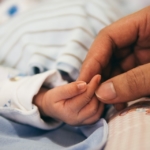In this Special Report published in Psychiatric News, Dr. Laura Miller reviews the data regarding the impact of stress experienced by the mother during pregnancy on pregnancy outcomes and fetal development.
“I just feel like I am broken. I am the worst pregnant woman ever.”
These are the words of a woman interviewed by Aleksandra Staneva, Ph.D., and colleagues as they conducted a study on how women experience and interpret psychological distress while they are pregnant. The study was reported in the June 2017 Health Care for Women International. What they learned is that for many women, experiencing distress during pregnancy runs smack into unrealistic cultural expectations and fuels excessive guilt. Women report feeling totally responsible for the well-being of their babies. With increasing media attention to the harmful effects of stress on fetuses, some women believe they are supposed to remain happy and serene throughout their pregnancies, and if they don’t, it’s their fault. So what does research to date actually tell us about the effect of maternal antenatal distress on offspring?
First, a word about the term “distress.” In the context of research on the effects of antenatal maternal psychological states on offspring, “distress” encompasses maternal anxiety, depression, and perceived stress. This is because studies to date have found that any of these, or any mixture of these, has similar effects on offspring. Though there are some distinctions, most researchers have found it more valuable to examine these collectively.
Finish reading the article HERE.
Laura J. Miller, MD is medical director of reproductive mental health in the Office of Mental Health and Suicide Prevention at the Veterans Health Administration and a professor of psychiatry at the Loyola University Stritch School of Medicine.
Special Report: Stress and Distress During Pregnancy—How to Protect Both Mother and Child (Psychiatric News)






Leave A Comment